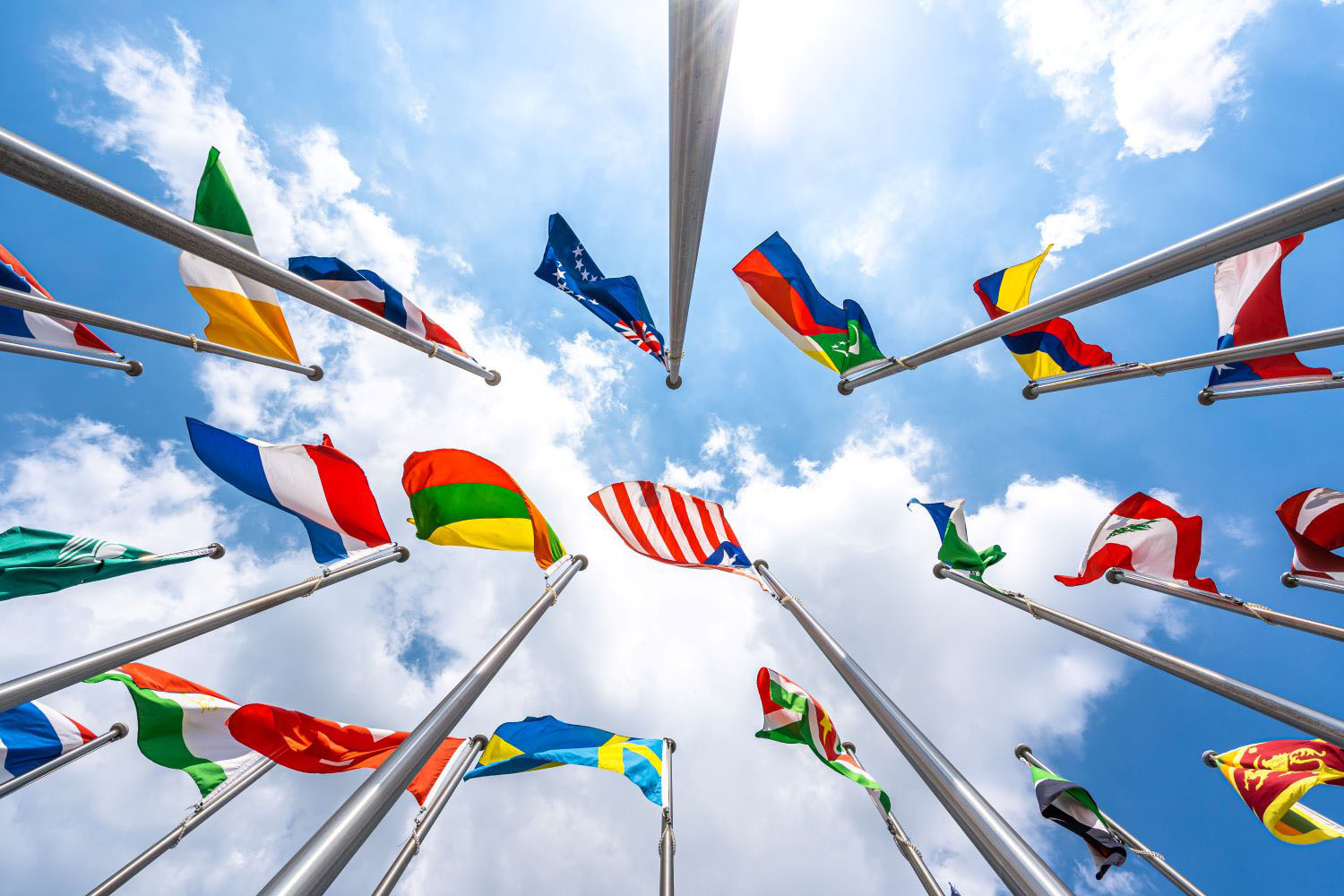“Many of you will know that Ed Scott, who is a co-founder and the founding chair of CGD, is also the initial generous benefactor that made CGD possible,” CGD president Nancy Birdsall told a standing-room only lunchtime crowd in the Center’s new conference center. “We would not be here today without what he did.”
Nancy’s remarks opened an unusual CGD event in late March that marked the beginning transition to a new Board chair, former U.S. Treasury secretary Larry Summers, effective May 1. Most of our events are about the world of development policy. This one focused on Ed’s reflections on CGD itself, the ideas and experiences that moved him to create it, and his hopes and expectations for the future.
A successful businessman, former senior United States government official, and innovative philanthropist, Ed is also a serial social entrepreneur with a flair for success. Besides co-founding CGD, he founded the advocacy organization DATA (Debt, AIDS, Trade, Africa) together with Bill Gates and George Soros (DATA has since joined forces with the ONE Campaign). He founded Friends of the Global Fight, which provides support in the U.S. for the Global Fund to Fight AIDS, Tuberculosis and Malaria, and has served as a model for similar organizations around the world. And he founded the Center for Interfaith Action on Global Poverty, a global center of excellence on interfaith action.
Ruth Levine tells of a question that “terrified” her.
David Callahan, the founding editor of Inside Philanthropy, who was on hand at the event to lead a Q&A with Ed after his talk, recently published an article that called Ed “Silicon Valley’s most effective global giver.”
Among those who came to honor Ed and hear his talk was Ruth Levine, director of the Hewlett Foundation’s Global Development and Population Program and former vice president of programs at CGD, who in the Center’s early years established many of the values and practices that continue to guide our work today. In introducing Ruth, Nancy described her as “my in-house co-conspirator in realizing the vision that Ed has had of what CGD should be.”
Taking the stage to introduce Ed, Ruth disclosed a catalytic encounter with him soon after she had joined CGD. Ed’s sharp questions about how a report she had just completed would “save babies in the next year” initially “terrified” her, Ruth recalled, then transformed her from a “write a good report person” to a “try to make a big difference person”.
Ed Scott recalls a conversation with Gene Sperling and others that sparked the idea for the creation of the Center for Global Development.
Ruth also praised Ed’s style of leadership: articulating a vision, finding the best people to share and develop it, then giving them wide latitude in figuring out how to proceed. “Ed is able to place a bet and wait to see whether it pays off. Far more than many others seem to be able to do, he lets go,” Ruth said. “And as he does, the institutions that he supports go further and higher than they would if he held on tight.”
Ed took the stage to a warm applause and, because I had repeatedly urged him to do so, re-told the story of how a late-night PBS television documentary on developing country debt got him thinking about how rich-countries’ policies can unintentionally and unfairly limit the prospects of poor people in the developing world —people like the children who lived in orphanages he had helped to found in Nicaragua.
Returning to Washington, where he had served as a senior official in the Carter administration before making a fortune as a co-founder of BEA Systems, Ed asked friends and acquaintances about who would be best placed to help him understand developing country debt issues, and other rich-country policies towards developing countries. One name came up again and again: Nancy Birdsall, a former head of the World Bank policy research department and executive vice president of the Inter-American Development Bank, who was at that time a program director at the Carnegie Endowment for International Peace.
Ed Scott describes meetings with Ngaire Woods and Fred Bergsten that led to his selecting Nancy Birdsall to launch CGD.
The two agreed in an early meeting that CGD would not be “a sandbox for economists,” Ed recalled. “CGD is about changing things, getting things done, making things in the world different than the way it is,” he said. CGD’s first book, Delivering on Debt Relief: From IMF Gold to a New Aid Architecture, by Nancy and John Williamson, included a proposal for the IMF to revalue or sell some of its gold reserves to generate funds for debt relief—a radical proposal at the time that was eventually adopted.
Ed highlighted CGD’s successes over the last 12 years, including the book Millions Saved, which chronicles sustained, large-scale successes in global health, providing the analytical work that underpinned $36 billion in debt relief for Nigeria, and new research on aid effectiveness that led to President George W. Bush’s creation of an innovative U.S. assistance program, the Millennium Challenge Corp.
Ed Scott on the importance of a “financial runway” and recruiting the best and brightest.
He then asked, “Where do we go from here?” Ed’s to-do list for CGD included greatly stepped up work and fervor on improving the status of women and girls; improving the situation orphans and vulnerable children—a companion issue to the status of women; finding a way for governments, thought leaders and faith-based institutions to come together; and embracing other countries (Japan, Brazil, Korea, Russia, Cuba, and India were among those he mentioned) in the global fight against poverty. One specific policy suggestion that resonates well with CGD’s ongoing work on migration and development and that would be good for the US and developing countries: double the number of student visas and provide a “green card” residency permit to any foreign student who completes a graduate degree in the United States.
Ed closed his remarks with a compelling story of his experience in Kenya meeting a man who was dying of AIDS. “It’s not about us. It’s about those people out there who can’t speak for themselves,” he concluded.
One of the most captivating parts of the event for me was the Davos-style Q&A session with David Callahan of Inside Philanthropy about why more wealthy people don’t embrace philanthropy and, in particular, follow Ed’s path of policy engagement on global development issues. Ed demurred, saying it was not for him to tell others what to do, but eventually said: “I feel sorry for those people because there’s nothing that gives you a rush like effective giving.” You can see that conversation below. For the full event video, click here.
Ed Scott on the unmatched thrill of helping those in need.
Disclaimer
CGD blog posts reflect the views of the authors, drawing on prior research and experience in their areas of expertise. CGD is a nonpartisan, independent organization and does not take institutional positions.





